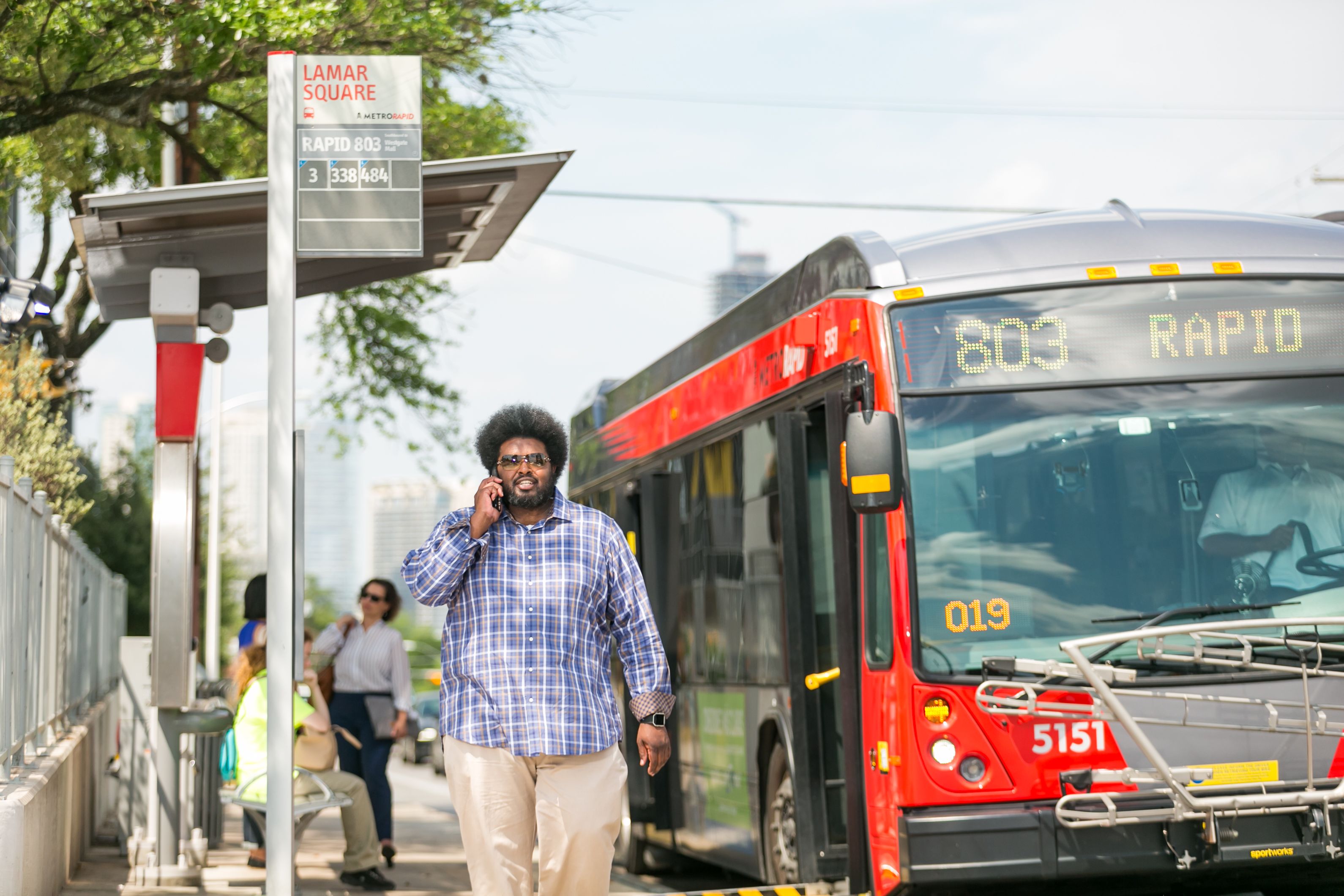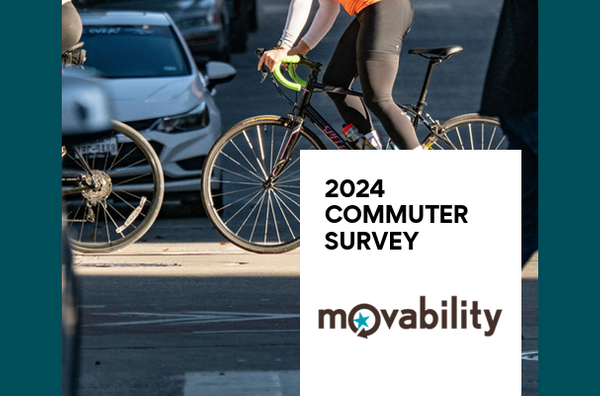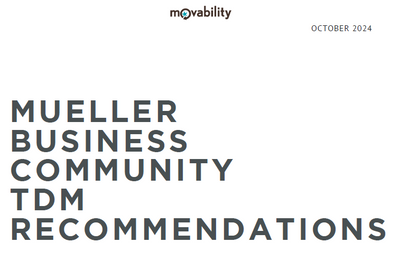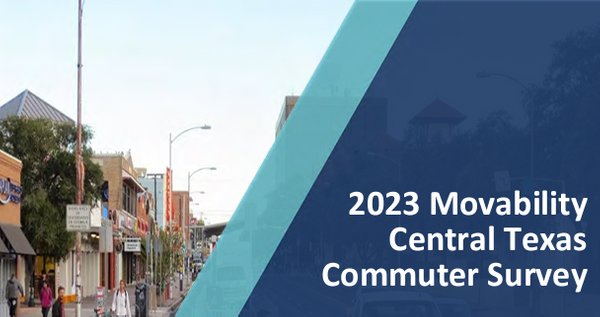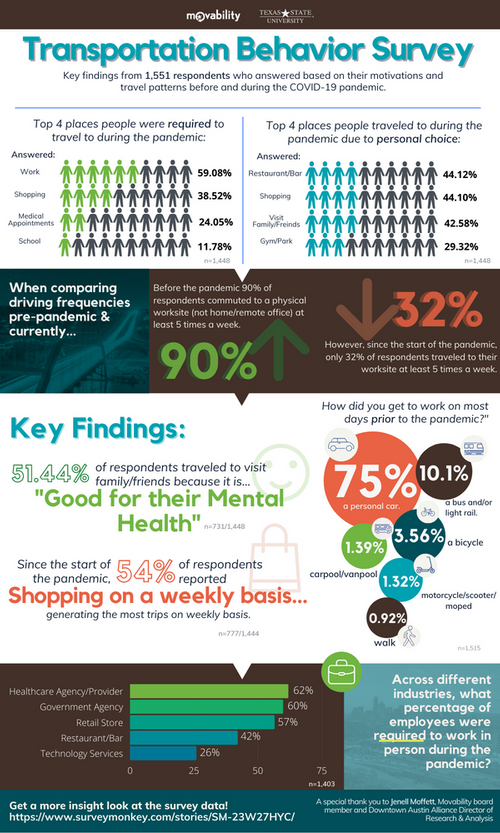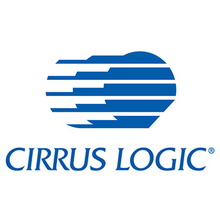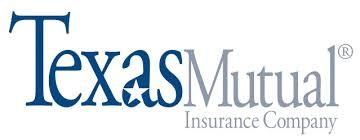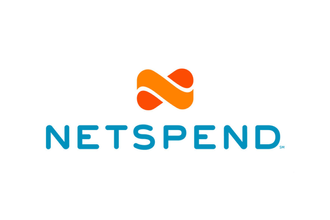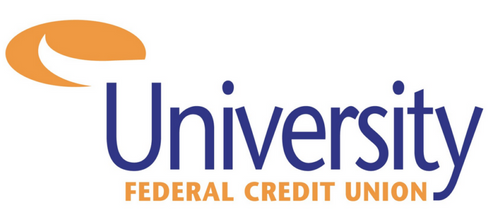Reports and White Papers
2025 Carpool Focus Group Findings
To better understand barriers and opportunities to increase carpooling and vanpooling participation in the region, Movability hosted three focus groups with suburban commuters in June 2025. This report summarizes the findings and recommendations that came from those focus groups.
Fall 2025-26 Progress Report
Drawing on lessons learned from the year one pilot, Movability and Go Together have made several programmatic adjustments with a focus on identifying and implementing program components that are most successful and lead to measurable impacts to regional traffic challenges and air quality.
SchoolPool Pilot Year Summary Report
SchoolPool leverages a secure web and mobile app platform from service provider Go Together to match parents to potential carpool, walk pool or bike pool partners by providing secure, easy-to-use tools to help them join existing school pools or start new ones. With the 2024-25 academic school year now complete, Movability is applying “lessons learned” from the pilot year.
Spring 2025 SchoolPool Focus Group report
On April 19, 2025, Movability hosted a focus group with 15 parents representing five of the seven schools enrolled at the time in the SchoolPool Pilot Program. The goal was to gather meaningful insight into how families perceived the program and their experiences using the Go Together platform, with a particular focus on usability, communication, safety protocols, and logistical effectiveness
Spring 2024-25 Progress Report
Movability's SchoolPool program began its pilot in the spring of 2024, working with charter, public, and private schools in Hays and Travis Counties. This report is a progress update on the pilot program since the previous report, issued in January 2025.
2024 Central Texas Commuter Survey
Movability conducted a commuter survey during the fall of 2024 with the support of the ETC Institute to assess commuter travel patterns and to help determine priorities to enhance the transportation system in Hays, Travis, and Williamson Counties. This is Movability’s second annual community-wide commuter survey.
Winter 2024-25 Progress Report
Movability's SchoolPool program began its pilot in the spring of 2024, working with charter, public, and private schools in Hays and Travis Counties. This report is a progress update on the pilot program since the first report issued in October 2024.
Mueller TDM Recommendations
Movability, the region’s transportation management association, worked with the City of Austin in 2024 to better understand how Mueller businesses are being impacted by parking and traffic issues, as well as to develop recommendations to alleviate these pressures.
Fall 2024-25 Progress Report
In spring 2024, Movability launched SchoolPool, a pilot grant-based carpool matching program targeting Central Texas schools for the 2024-2025 school year.
Carbon Cred Focus Group Whitepaper
In 2024, Movability introduced the Carbon Cred app. To understand how Carbon Cred would work for those already logging trips as part of Get There Central Texas, Movability invited active program participants to download Carbon Cred, try it out, and share their feedback.
2023 Central Texas Commuter Survey
Movability conducted a commuter survey in late 2023 to assess commuter travel patterns and to help determine priorities to enhance the transportation system in Hays, Travis, and Williamson Counties. Moving forward, this survey also serves as baseline for comparing how commuting behaviors change over time.
COVID-19 TRANSPORTATION BEHAVIOR SURVEY
From early February to mid-March 2021 Movability surveyed individuals about the motivations behind their travel choices during the pandemic. The purpose of this study was to provide decision-makers, business leaders, and policymakers with data explaining where and why there is so much traffic, even as traditional commute patterns were disrupted.
Covid-19 Telework Survey
In order to understand how the Covid-19 shitdown affected the lives of community members, Movability & Texas State University's Translational Health Research lab conducted a survey in April 2020 asking people to reflect on how working from home is working for them.
2019 Commuter Research Study
Together with the Translational Health Research Initiative at Texas State University, Movability launched a pilot project at the end of 2019 to show the data behind how people who work in Austin's Central Business District get to and from work.
Case Studies
Wild About Music
Wild About Music is a small, locally based business with four brands that all participate in the Move Pass program. By providing commute assistance for employees, Wild About Music has seen improved recruitment and retention as well as a reduction in absenteeism.
moreArcher Malmo
When moving offices, Archer Malmo leadership wanted to grow staff without paying for more parking spaces. Movability helped the agency design a new commute benefits package and market those commute options to employees.
moreSomething Cool Studios
Something Cool Studios used funding from Movability's GoGrant program to build a custom bike rack that acts as a placemaking piece of public art as well as providing much-needed bike storage.
moreMaxwell Locke & Ritter
“Maxwell Locke & Ritter has been a member of Movability since 2012. Our firm believes wholeheartedly in the mission, and that all businesses, large and small, should do what they can to help reduce traffic congestion. Movability provides the expertise, information, and guidance to make doing so an easy task."
moreUniversity of Texas at Austin
With over 75,000 visitors to campus each day, parking at the University of Texas is a limited commodity. UT Parking and Transportation Services (PTS) manages the 12 parking garages and surface lots on campus and devotes considerable time and resources to promoting alternatives to single-occupancy vehicle trips to and from the Forty Acres.
moreCirrus Logic
In 2011 Cirrus Logic was getting ready to move from its former headquarters at Loop 360 and MoPac to a new home in downtown Austin, and as part of that move Cirrus’ leadership also started thinking about better ways to get employees to work. Not only would commute times change, a downtown location had implications for parking availability and for filling the streets with more cars. The company began working with Movability in order to understand what solutions, besides driving alone, it could provide to employees.
“We didn’t have enough parking spaces for every person at our new location,” says Bill Schnell, public relations manager at Cirrus Logic. “We started talking with Movability, who helped us implement employee surveys and engage interest in various forms of alternative transportation to find out how we could increase the number of people who would otherwise drive alone to work each day.”
Seven years later, Cirrus has a thriving mobility policy in place.
Cirrus started by reimbursing employees who commuted on the Red Line train, and then began reimbursing employees for all Capital Metro transit. In the summer heat, making the nearly 1-mile connection between the train station and Cirrus’ office was challenging, so the company began what it calls its “blue line,” a shuttle that runs between the downtown rail station and the office.
moreTexas Mutual
Austin-based Texas Mutual Insurance Company knows that traffic in Austin impacts more than just our time – it’s also a quality of life and work issue.
The company took on the Mobility Challenge in 2016 because it saw addressing mobility as a way to attract and retain top workers. Jeremiah Bentley, Senior Manager for Marketing and Community Affairs with Texas Mutual, says the nature of the business allows the company to provide flexibility for its employee base.
“We believe that our mobility program will allow us to recruit and retain high level talent. Daily commuting challenges can be frustrating for our employees and lead to reduced job satisfaction and productivity,” Bentley says. “By allowing employees to participate in a variety of mobility options during the week, employees will have greater overall job satisfaction and will be motivated to stay with Texas Mutual for the long term. Our mobility program is another tool we have to recruit employees looking for a great place to work. Such programs will become more and more important for employers as newer labor market participants are seeking employment in places where they have flexibility and where they can make a difference.”
moreNetSpend
NetSpend – a leading provider of reloadable prepaid cards – first contacted Movability Austin in 2014 when they began running out of parking spots for their 384 downtown employees. The growing company knew that they needed to help connect employees with other commute modes, and they began exploring ways of doing that.
Participating in the Mobility Challenge gave NetSpend a chance to ramp up those efforts, which are still going strong today. By making alternative commutes part of a company-wide game during the Mobility Challenge week, NetSpend gave employees a fun incentive to explore new commutes. At the same time, the company offered free bus passes that week, which made trying a new commute that much easier.
“We formed teams and assigned ambassadors who already used alternative commute options to meet with employees based on zip codes,” says Lynda Lerma, manager of administrative services for NetSpend. “We gave everyone lanyards, and every time they used a different option, we would give them flair to put on their lanyard.”
Those lanyards with the kind-of-goofy flair sparked conversation, and a friendly rivalry too, and NetSpend employees got creative with their commutes.
moreUFCU
University Federal Credit Union was one of the earliest Mobility Challenge adopters, participating in the first Mobility Week in 2014. By taking the Mobility Challenge to reduce the number of employees driving alone at peak rush hours the credit union wanted to improve both the well-being of the community and its employees.
“UFCU recognizes how congested roadways impact our community and in particular our employees,” says Jeff Flanagan, Manager of Compensation and Benefits with UFCU. “We are building awareness with our employees regarding their commute options, including the encouragement and support to try something different in how they get to and from work. The goal is to provide sustainable programs that allow our folks a little more work-life balance so they can in turn continue to provide for the well-being of our members.”
UFCU’s workforce is spread all over the great Austin area, including a large number at its headquarters location in North Central Austin. Flanagan says that means that providing mobility options won’t be a one-size-fits-all process.
UFCU started out by studying its employees’ commute habits, and figuring out how to meet people where they are – and since starting the challenge, UFCU has built on that. This year the credit union hopes to enhance and create several programs to give its employees the tools and resources to determine what solution works best for them, Flanagan says.
moreAMD
When the Mobility Challenge began in 2014, Advanced Micro Devices (AMD) was one of the first companies to participate – and since taking the challenge, the company has continued to connect employees with mobility options.
Problems on both a micro and macro scale – time wasted in traffic and air pollution – prompted AMD to take the challenge. The company has been committed to global environmental goals, including the way its employees commute, for over a decade.
“AMD joined the Mobility Challenge to participate in a scalable solution to reduce traffic congestion, commute time, and air pollution,” says Justin Murrill, AMD Global Sustainability Manager. “Doing so benefits our employees, the community, and the planet. It’s been useful to learn about new tools and best practices, several of which we have integrated into AMD’s commuter benefits package.”
Since taking the Mobility Challenge, AMD has continued to look for ways to reduce peak hour solo commutes among its employees, mostly through collaborations. The company has partnered with public and private groups, including Metropia, to help employees evaluate flex-schedule options; Capital Metro, to promote new vanpools; and Competitive Cyclist to incentivize bike commuting to work.
moreEndeavor
Full service commercial real estate company Endeavor Real Estate Group joined the Mobility Challenge in 2016 both to take on an active role as a corporate leader and to help improve employee morale and retention.
“It was a request made by our mayor, and we wanted to be good, constructive ‘corporate’ citizens,” says Becky Heston, Principal with Endeavor. “That’s what brought the Mobility Challenge to our attention, but we also recognized that mobility issues do impact employee satisfaction. We think employee satisfaction impacts customer satisfaction, and that’s a huge part of our business.”
The company also wants to do the right thing for the environment, and sees cutting down on the number of idling cars in traffic congestion as a way to succeed with this goal.
After planning sessions with Movability and The Thrival Company, Endeavor came up with a mobility plan that includes several goals. Among them is the development of a mobility concierge program for downtown properties the company manages. Another goal is to try out flex hours and telecommuting for eligible employees.
Endeavor already offered Car2Go benefits and bus passes to employees who chose not to drive, as well as summer compressed schedules, but is now extending an internal questionnaire to employees about mobility options so that the company can fine-tune its offerings.
moreSilicon Labs
Austin’s Silicon Labs is located in the heart of downtown, which is great for walking to meetings and restaurants and being part of a vibrant business district – but not so great for employees driving in rush hour traffic to get to work.
“Our employees experience traffic on every possible corridor, from downtown streets to freeways and toll roads, to get to work every day,” says Jackie Padgett, Silicon Labs’ Communications and Community Relations Specialist. “As a major employer we believe it’s our responsibility to be a good corporate citizen and do our part to help reduce traffic congestion and emissions. Our downtown location will stop being a work perk if we don’t help reduce traffic.”
That’s why Silicon Labs decided to take on the Mobility Challenge. In doing so, the company hopes to make it easy for its employees to choose alternative ways to get to and from work and reduce drive alone time.
To get there, Silicon Labs took a multi-pronged approach: it created an employee-led Transportation Committee that meets quarterly to discuss potential initiatives to reduce drive-alone time, and also added in-depth information on its intranet on ways employees can get to work using alternative transportation including biking and ride sharing among other options. Silicon Labs has also worked with Capital Metro to host quarterly “transit adventures” where employees ride the bus to and from lunch or happy hour venues – a fun, no-pressure way to try out transit. And most recently the company has developed a parking incentive plan that will allow employees to receive a monthly stipend if they give up their parking spaces in Silicon Labs’ downtown parking garages.
moreAmplify Credit Union
Member-owned financial cooperative Amplify Credit Union has been in Austin since 1967, long enough to see a lot of traffic growth in this city! With locations all over the Austin area, Amplify knows that long commutes and transportation costs add up to cause huge stress on team members. The credit union is also growing and adding more workspace for added team members can be a challenge. With that in mind, Amplify joined the Mobility Challenge Class of 2017, and hopes to develop policies to help employees telecommute, work flexible hours, and use alternate transportation.
“Amplify and Movability have a shared vision of making Austin a better place in which to work and live,” says Terry McCoy, Senior Training Specialist at Amplify. “This makes the program perfectly in line with our mission to have a positive influence in the community.”
As a participant in the Mobility Challenge class of 2017, Amplify Credit Union worked with Movability and the Thrival Company on developing a customized mobility plan for its employees. Are you an employer that is interested in benefiting your business, the community, and your employees by creating policies to support alternative commutes? Contact Kate Harrington to learn more about participating in the Mobility Challenge.
more
